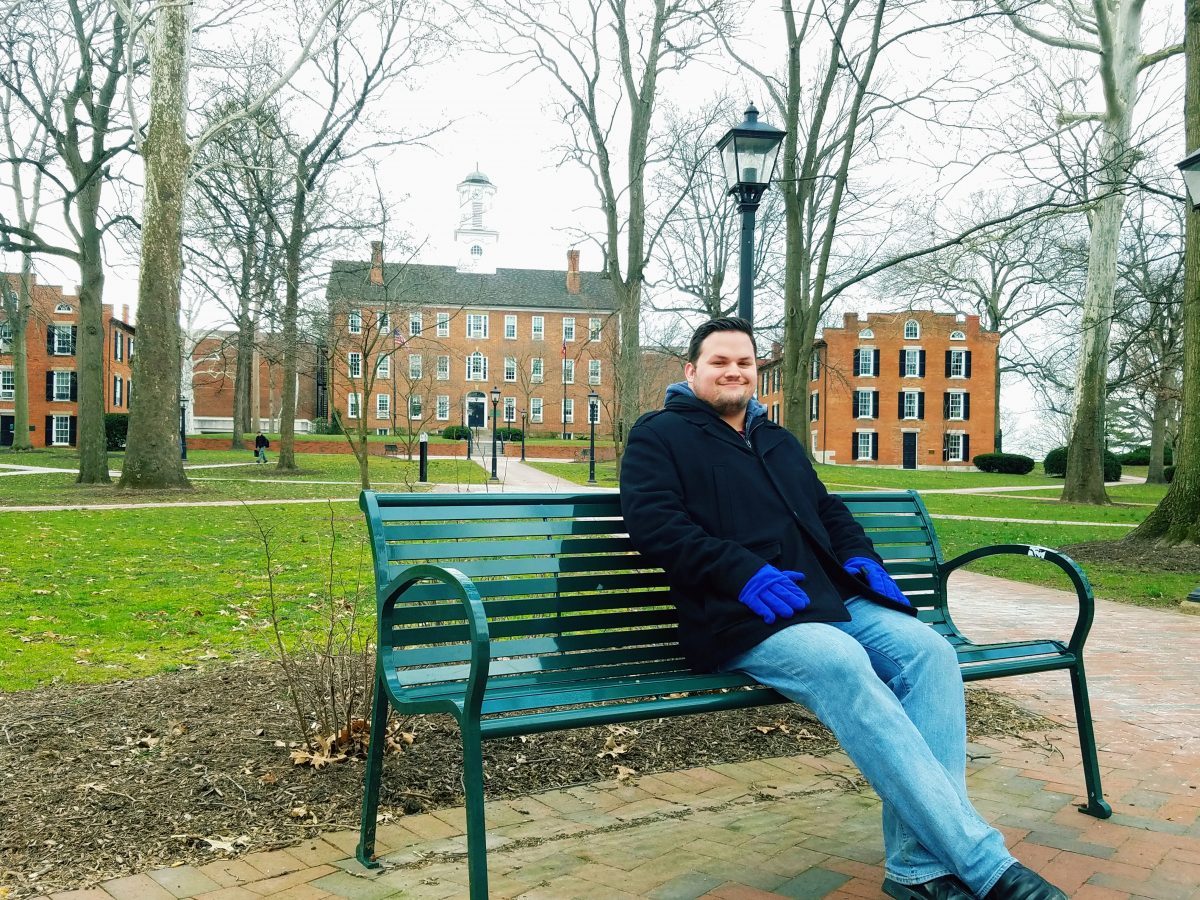Uncategorized

Making Pride Safe Spaces for Aces
By: Anna Turner, Kay Jurma
Posted on:
In LGBT spaces, respect for asexual identities can be a hit or miss. But being respectful goes beyond welcoming ace people into events and flying their pride flags; it has as much to do with ace folk’s sexualities as it does with truly taking their experiences into account.
Meet Aspen Wilson, a former Ohio University student who identifies as asexual. This means they don’t experience sexual attraction to other people. Asexuality is an identity that many aren’t familiar with, and there are arguments, even in the community, about whether it “counts” as LGBT. So, it can be tricky for someone like Aspen to know if a space will be respectful and inclusive of their asexuality.
“Um in LGBT spaces it gets kind of complicated because some places yes, some places no,” Aspen says. “Um I feel like the fact that I’m queer outside of being asexual makes it more acceptable to the community, for me to be around.”
Since coming out in high school, Aspen has been to several LGBT spaces and events where they’ve felt their asexuality was validated, like the Pride parade in Cincinnati.
“One time I had the asexual flag painted on my face on one of my cheeks and the pansexual flag on the other. And…nobody said anything to me about it, I was treated just like everybody else there,” Aspen says.
Eren Rene is another former OU student who also identifies as asexual. Like Aspen, they’ve encountered some negativity about their asexuality in the past, but have also had a relatively positive experience at events like Columbus Pride.
“The ones that I’ve been to it’s just been like another queer identity that people have been like “hey, over here, look, there’s people like you” and it’s pretty cool,” Eren says.
Pride events like those in Cincinnati and Columbus do have things like tents and vendors that sell asexual pride merchandise. And that’s a really great step in acknowledging and including an identity that tends to get left out of LGBT spaces. But representation doesn’t guarantee that people will feel welcome. In the case of many asexuals, a lot of discomfort comes from the sexualization that happens at these big pride events.
“Things like that, people walking around ya know with a giant codpiece on and I like, I just don’t think that’s necessary at pride um and I feel like in that situation they aren’t really being considerate of the fact that, you know, some people aren’t going to pride to see sexual things, they’re going there to celebrate their identity,” Aspen tells us.
There’s a mix of feeling both included and excluded at the same time. Think of it like a restaurant that serves both meat and vegetarian options. Now, imagine you order a vegetarian dish, but it’s been grilled on the same grill as the meat. Even though your meal doesn’t have meat in it, the restaurant wasn’t really considerate in preparing your dish.
When much of the dominate gay culture tends to be very sexualized, it can be tricky to create LGBT events that…well…aren’t. But as Aspen points out, doing that doesn’t make an all-inclusive space either.
“It’s hard to say because again I’m not…about censoring people, but at the same time I feel like it should be an environment where everyone can feel comfortable. It’s definitely a difficult subject to deal with. You know how do you, how do you balance making people feel comfortable in their identities and also not making other attendees feel uncomfortable.”
Both Eren and Aspen recognize that it’s complicated when it comes to making space for everyone without creating divisions. Identities are messy and there are no clear-cut resolutions.
But the Southeastern Ohio LGBT Coalition is navigating the messiness to make sure everyone feels welcome with spaces they feel comfortable in. Douglas Koala Robinson, the communications director for the Coalition says, it sends out surveys, asks for feedback on social media, and holds public forums to get feedback from members of the community.
“So we’ve used that information and we took anything that people provided to us actually before we started pride 2017 to go through and try to make sure everyone voice was heard and you know, we’re here for the people who are coming to the event, not for the organizations that are paying to sponsor the event,” Douglass says.
He says everyone, regardless of their identities, is welcome at Athens Pride Fest 2018, which is the week of June 3rd-10th. Because it spans an entire week, it makes it a little easier to plan a wider variety of events that appeal to everyone. In addition to a parade, they’re looking into doing a comedy night, a movie night, a drag show, and family day with a hike and a picnic.
There are no clear answers of how to make pride accessible and welcome for everyone. But awareness of asexual identities is a step in the right direction to get people talking about it and thinking about how it can be improved.

